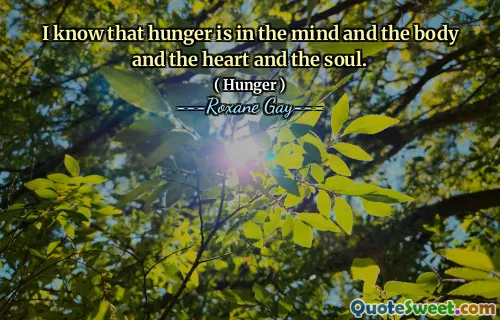He said/she said is why so many victims {or survivors, if you prefer that terminology} don't come forward. All too often, what "he said" matters more, so we just swallow the truth. We swallow it, and more often than not, that truth turns rancid. It spreads through the body like an infection. It becomes depression or addiction or obsession or some other physical manifestation of the silence of what she would have said, needed to say, couldn't say.
Roxane Gay, in her book "Hunger," highlights the struggle many victims face when it comes to sharing their experiences. She argues that the prevailing narrative often favors the perspective of the accused ("he said") over the victim's truth ("she said"). This discrepancy contributes to a culture where survivors feel compelled to keep silent, fearing their voices will be overshadowed or dismissed.
The repercussions of this silence can be profound, leading to emotional and psychological issues like depression and addiction. Gay suggests that the unexpressed truths fester within individuals, creating various manifestations of pain due to the inability to share their stories. The lingering effects of these unvoiced experiences underscore the need for society to prioritize and validate survivors' voices.






